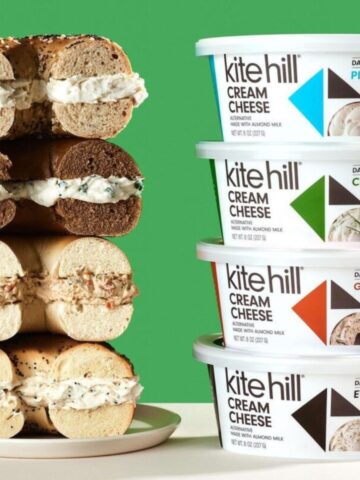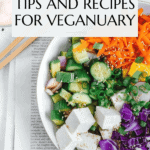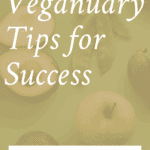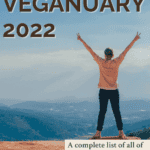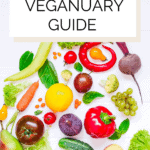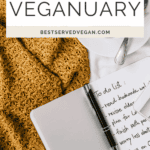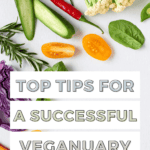Interested in going vegan for Veganuary this upcoming year? Here are my top tips for Veganuary so you can have a yummy and successful month!
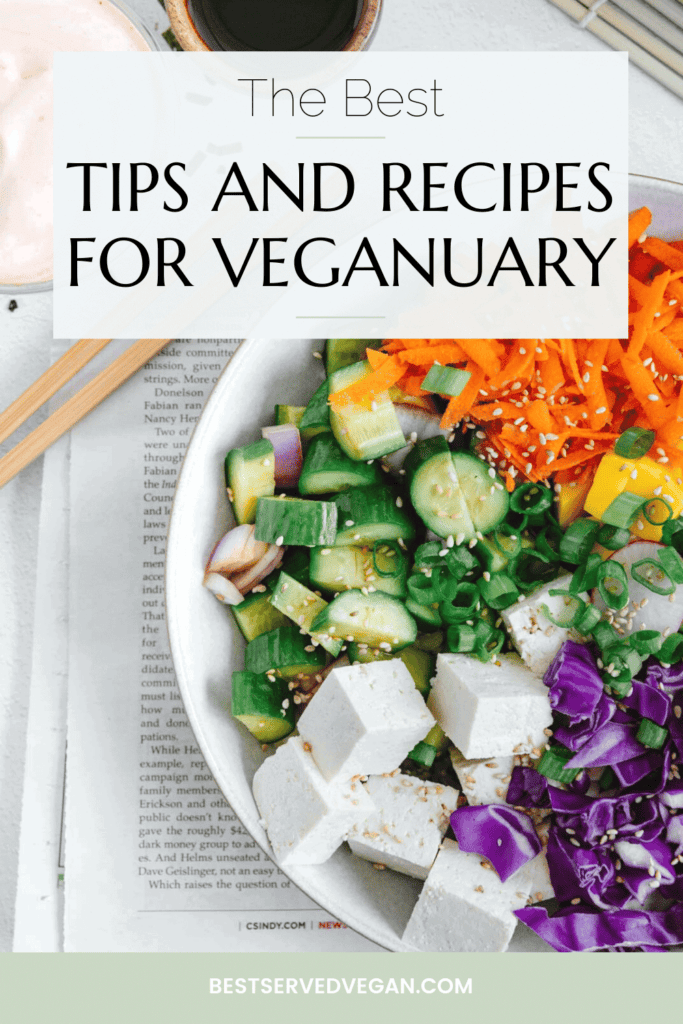
Veganuary is an amazing New Year’s resolution to make. Not only will you make an impact on the welfare of animals, but you’ll also reduce your environmental footprint and likely improve your health as well.
That said, the reality is that most New Year’s resolutions don’t last very long, and usually for the same old reasons. People try to do too much too fast, and it’s simply an unsustainable approach.
This Veganuary, however, it doesn’t have to be that way! Read on to learn ten super helpful tips that will have you thriving this Veganuary and beyond!
What is Veganuary?
Veganuary is actually a charitable organization that started in the UK. Their mission, encapsulated in their name, has inspired hundreds of thousands of people to try going vegan for the month of January. It’s a wonderful way to start the year!
What is Veganism?
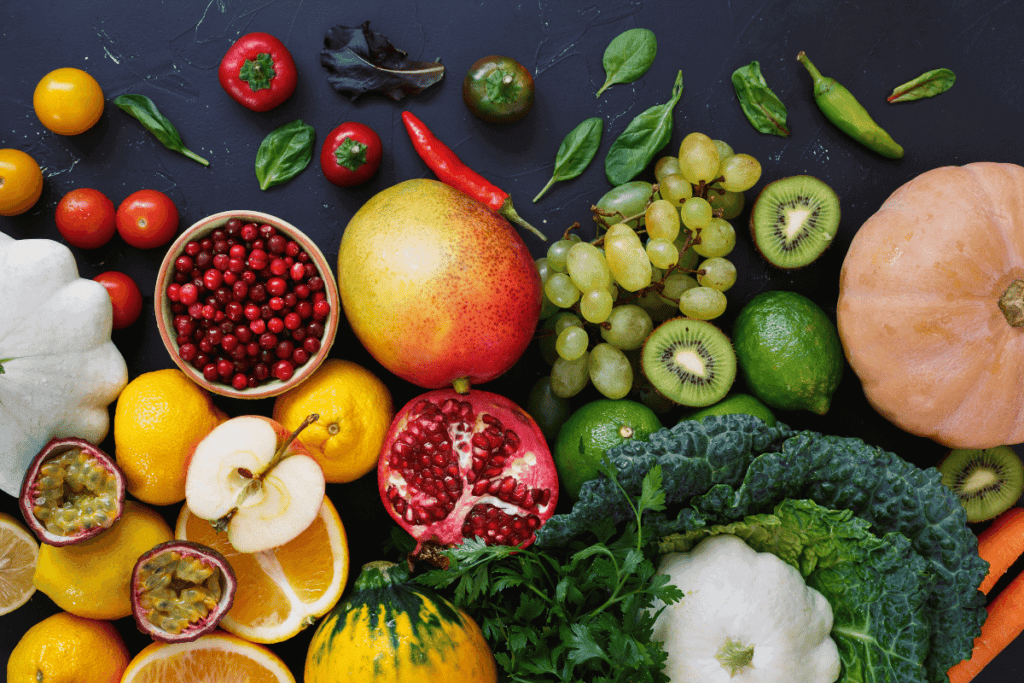
Veganism is a way of life that tries to limit the harm we cause to animals through their exploitation, whether for food, clothing, or any other purpose. Following the definition listed on The Vegan Society’s website, veganism is about avoiding harm to animals “as far as is possible and practicable”—I’ll go into this a bit more below.
Vegans thus avoid all animal foods, such as meat, fish, eggs, dairy, and honey, as well as animal-derived materials, such as leather, fur, and wool.
Tips for a Successful Veganuary
Before diving into my top ten tips for Veganuary list, I want to first make a couple of important points.
First off, don’t get sucked into the idea that veganism is about some kind of purity. Veganism is about doing as little harm as possible, as is practicable. Not everyone has the same resources or the same level of access to vegan foods. Yet everyone can make an effort to be as vegan as they can be. Veganism that revolves around an impossible ideal of “purity” is a toxic attitude that lends itself to moral superiority, something that vegans are already stereotyped for.
Secondly, do your best to maintain a positive attitude and don’t see veganism as just another restrictive diet. Personally, I eat a far greater range of foods than I ever did as an omnivore. There’s something like 80,000 edible plant foods out there, yet most people just eat the same few animals over and over again. Veganism can open you up to a whole new relationship with food, as well as with the earth and its creatures, and it can be an incredibly rewarding experience.
Now that we have those couple of things out of the way, let's get into my top tips for Veganuary!
Become a Master of “Veganizing”
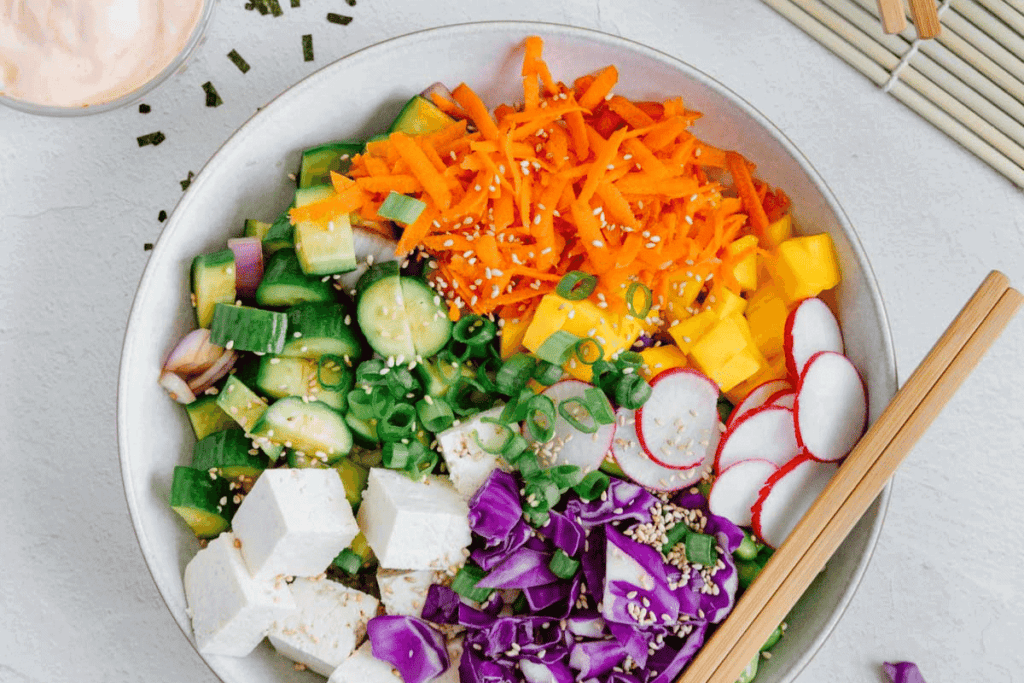
One of my first tips for Veganuary is to become a master of veganizing! When you’re going vegan, you will already have a lot of favorite foods and dishes. One of the biggest keys to going vegan is to continue to eat in a way that makes you happy. Yes, happy! And easily one of the best ways to do that is by “veganizing” those favorite dishes.
Even if you’re not a master in the kitchen, there are a ton of super simple vegan swaps. Plus, it’s never been easier to find substitutes for dairy, cheese, meat, even eggs! Most major grocery stores as well as many specialty, health-oriented grocery stores will have plenty of vegan options. You truly can enjoy all the same dishes you know and love by just making a few changes!
Check out some Best Served Vegan recipes that are classic examples of veganizing! To start, you might like the Vegan Poke Bowl, Vegan Tofu Burgers, or Vegan Pancakes.
Train Yourself to Check Labels

Most people never bother to check labels. The ingredients in our food, however, can play a huge part in not only our health but the health of our planet. If you’re going vegan, checking labels will become essential as you’ll need to know whether or not an item is vegan.
Many products will clearly state that they are vegan. Items cannot officially be certified vegan, however, if they come from factories or kitchens where non-vegan ingredients are present. This is due to trace contamination. It is incredibly hard to avoid this, however, so you will most likely want to go ahead and consider items vegan so long as they don’t contain any animal products in the listed ingredients.
A quick hack is to look underneath the ingredients list. Here, at least in the U.S., it will say if the item contains milk or eggs, as these are two of the major allergens that need to be listed if present in the ingredients. Once you’re in the habit of checking labels, it’ll become second nature and you’ll be much less likely to accidentally purchase a non-vegan item. (But don’t sweat it if that happens, even if you consume it! Remember that veganism is not about perfection but doing your best!)
Learn Some Basic Nutrition
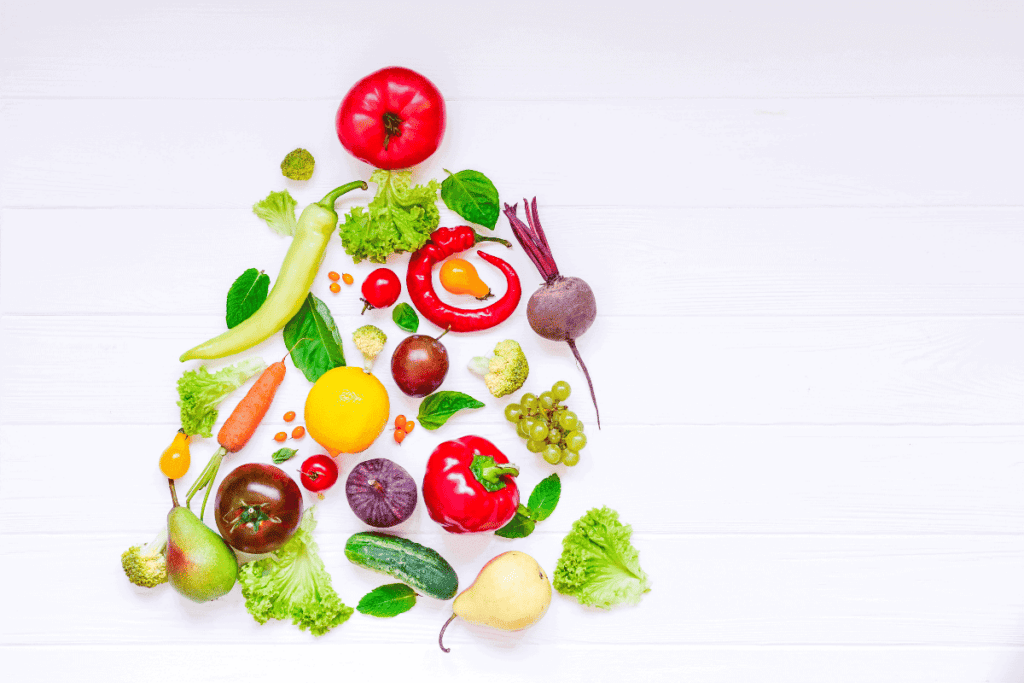
No, you don’t have to become a registered nutritionist or dietitian! But knowing some basic nutrition will really come in handy when you’re going vegan.
For example, the one nutrient that you should be sure to supplement once you’ve committed to going vegan is B12. You can find it in vitamin form, by itself or as part of a vegan multivitamin, and in fortified foods such as plant milks.
Another important nutrient for going vegan is protein. Although this macronutrient is arguably extremely overhyped, it’s true that protein has many benefits and will help keep you fuller longer. Check out an extensive list of vegan protein sources here!
In addition to protein, eating plenty of fruits, vegetables, nuts, seeds, and legumes will help keep you nice and full thanks to all the fiber.
Remind Yourself of the Benefits of Veganism

In my experience, going vegan has been incredibly rewarding. My only regret is that I didn’t start sooner! An easy way to remember the main benefits of veganism is to keep in mind these three main areas:
- Animals – By going vegan, you’re reducing the demand for meat and other animal products. Over time, and with more people going vegan, this will result in fewer animals being raised for slaughter. It’s already been working, and the evidence is in the fact that many major meat producers have invested into plant-based meat alternatives. Even with the pandemic, 2020 saw sales for plant-based food products increase by 27 percent to $7 billion.
- The environment – Going vegan is indisputably the best diet for the environment, particularly if you focus as much as possible on whole foods and locally sourced foods.
- Health – Many people who go vegan report losing weight and feeling more energetic. Plus, a vegan diet is a heart healthy diet, as only animal products contain cholesterol. Although you can easily load up on Oreos and vegan junk food, by focusing on a predominately healthy vegan diet, you will be reducing your risk for heart disease, diabetes, and cancer.
Using The Vegan Calculator, if you manage to go vegan for all of Veganuary, that equates to saving:
- 33,000 gallons of water
- 1,200 pounds of grain
- 900 square feet of forest
- 600 pounds of CO2
- 30 animal lives
Now, imagine you keep it up for the entire year and beyond! That’s a huge impact that you’ll be making!
It's Not the End of the World if you Slip Up

This is one of the most important tips for Veganuary to remember. Again, veganism is NOT about purity! Don’t be too hard on yourself if you slip up at first. Many people take a long time to go fully vegan, and that’s totally okay, no matter what some hardcore vegans might tell you.
The main thing is that you’re doing your best to transition toward veganism. Getting there eventually is better than never getting there at all, and a slower approach might be more sustainable for many people. If you find you’re having a lot of trouble with going completely vegan, try eating vegan one day a week for starters (like meatless Monday).
Watch Vegan Documentaries
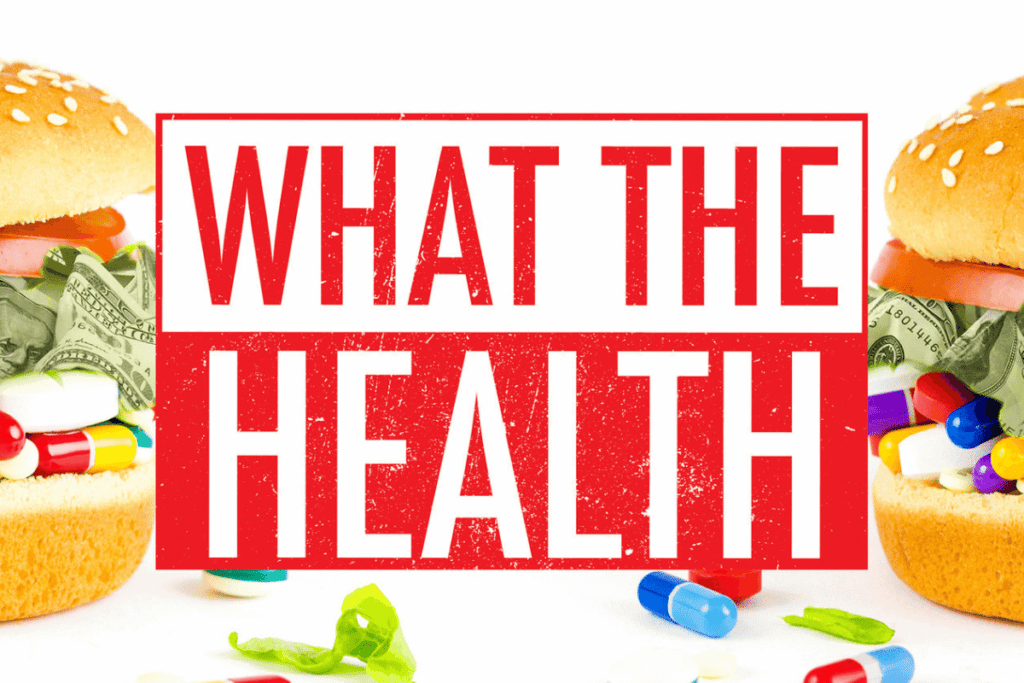
Vegan documentaries can be an incredible resource for motivating people who are interested in going vegan. If you find yourself struggling with Veganuary, or not feeling motivated to even start, try watching a vegan documentary on Netflix such as What the Health or The Game Changers.
In fact, there are a ton of vegan documentaries available on Netflix and other streaming sites, so no excuses!
Stay Organized
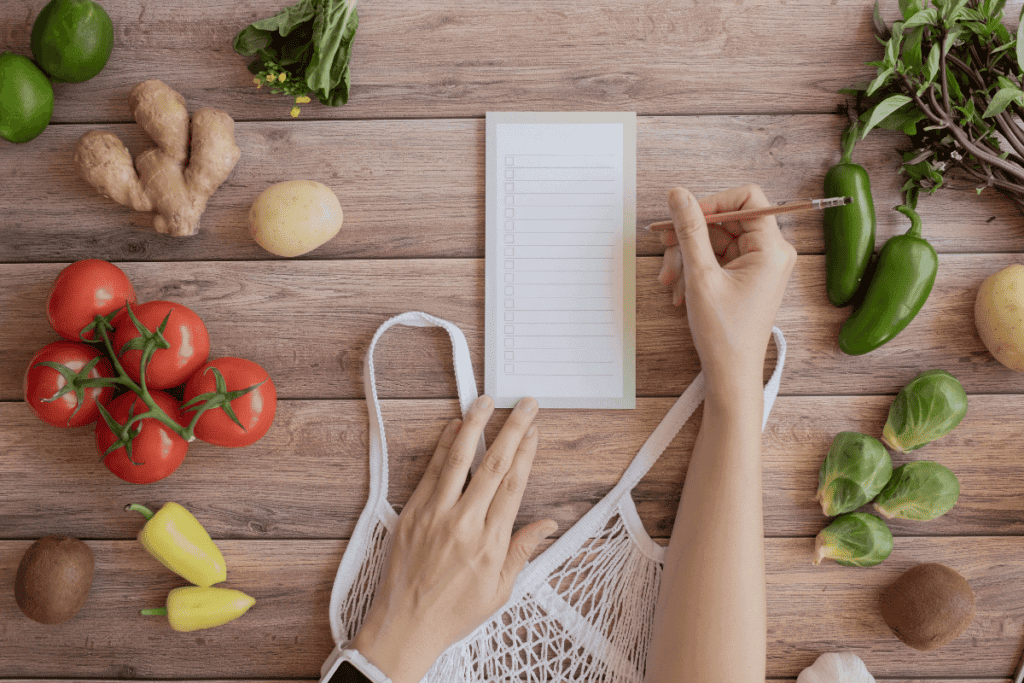
Staying organized is essential when going vegan, especially at the very beginning. Take the time to set up a good vegan grocery list. Looking up vegan recipes online first is also a good way to gain inspiration. You’ll also want to stock up on some dry good vegan staples such as beans, lentils, pasta, quinoa, etc. You can check out my list of vegan staples here!
You don’t have to meal prep or anything, but it could go a long way in helping you stay on track with your new vegan diet. If nothing else, try making extra food when you take the time to make a new vegan recipe. That way you’ll have leftovers, which will save you time and make it less tempting to go for something convenient that may not be vegan.
Keep an Open Mind
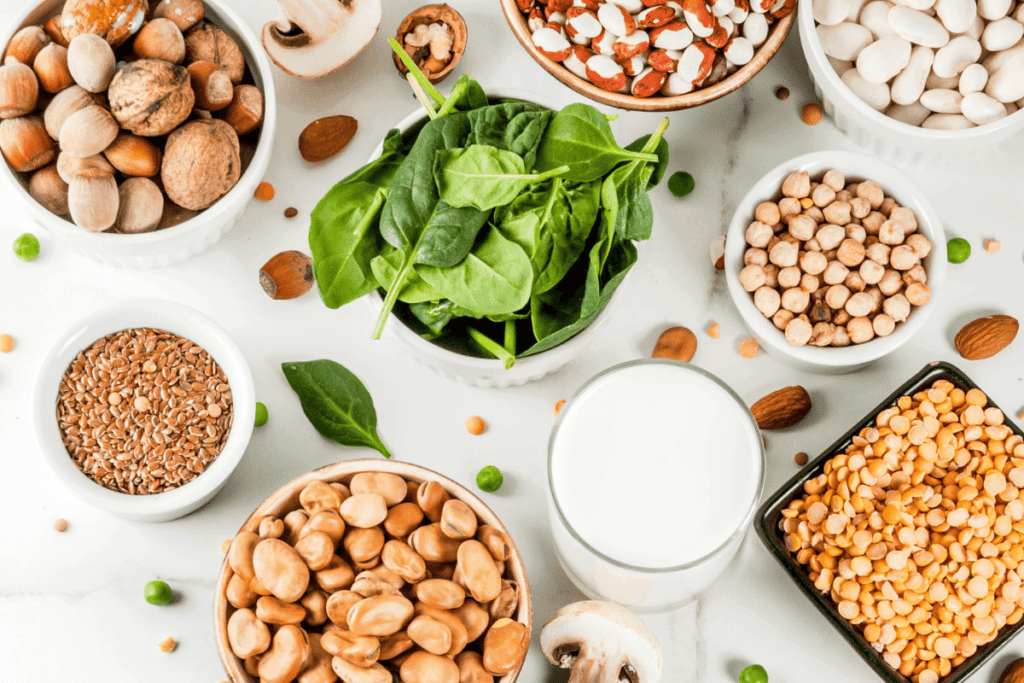
Before I went vegan, I ate far fewer foods than I do now. It seems paradoxical but it’s true. That’s why I dislike when people label veganism as “restrictive.” Instead of seeing it as what you can’t eat, you can look at it as no longer eating what was never yours to begin with (i.e. animals and their byproducts).
I’d never eaten tofu, tempeh, or seitan before going vegan. Now, these are things that I eat essentially every week. Don’t be afraid to experiment in the kitchen or eat out and try some new foods. You might just discover a new favorite fruit, vegetable, grain, legume, sauce, etc.!
Stay Balanced
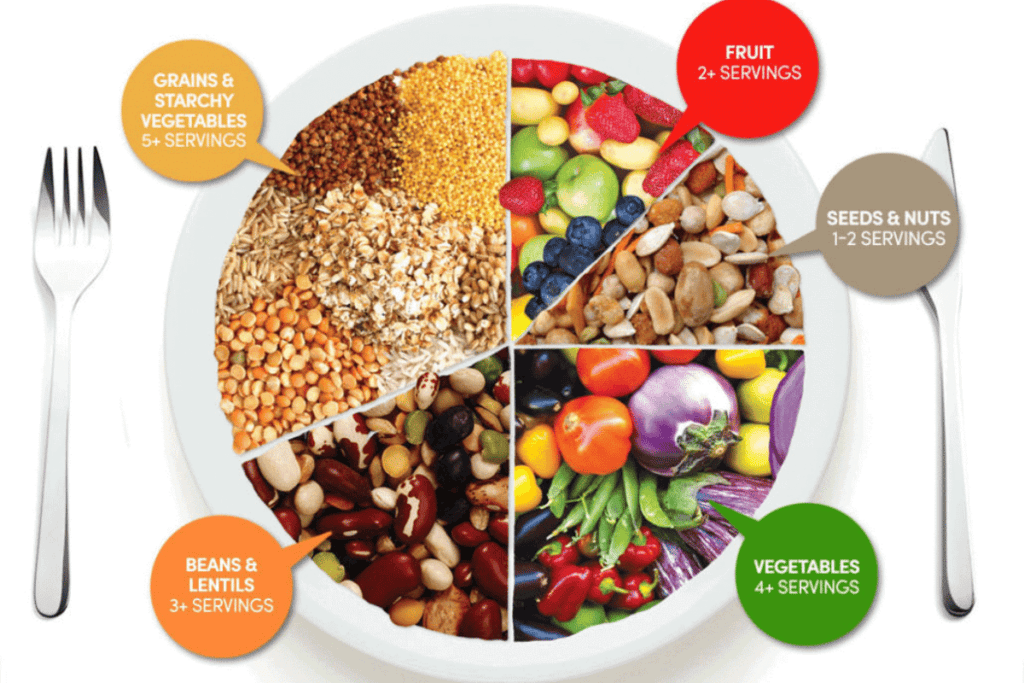
Balance is super key when you’re first going vegan. As I’ve hammered on throughout this article, veganism is not about being some flawless, perfect person. Eat some vegan junk food if it helps you make it through the month! Balance and moderation are fundamental to sustainability. If you’re just starting out going vegan and you commit to being a whole foods only vegan, or a raw vegan, your chances of staying vegan will be far slimmer.
Try a basic split, maybe 75/25 or 80/20, that sees you eating 75 or 80% healthy, whole foods, and 20 or 25% vegan junk food/processed food. This is roughly what I do, and it’s been very sustainable for over three years now!
In short, make sure you’re eating a balanced diet. Only eating junk/processed food, even if it’s vegan, will likely have you feeling pretty bleh. Make sure you include nutritious whole foods, which will energize you and keep you feeling full longer! A good way to eat a balanced vegan diet is simply to focus on incorporating all aspects of the vegan food pyramid each day: grains, vegetables, fruits, legumes, and nuts and seeds.
Be Prepared
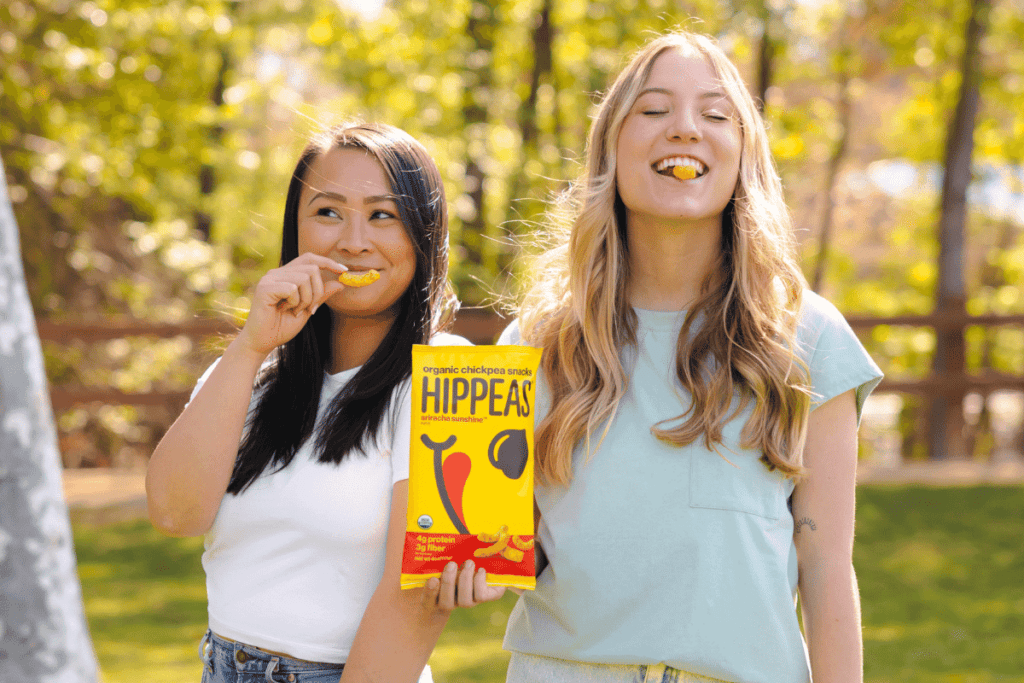
I’m sure you’ve heard the term “hangry.” Maybe you even suffer from the occasional bout of “hangriness” yourself? I know that I do.
As a vegan, hanger can be harder to stave off since you might be out and about and not have any good vegan options. This could be at a restaurant, a friend’s place, on a road trip, etc. The best thing you can do is be prepared! Be sure to keep some snacks in your backpack, purse, car, etc. so that you have a good vegan snack when needed. (Try apple slices and peanut butter, veggies and hummus, pretzel/pita chips and hummus, a granola bar, etc.)
It’s also a good idea to prepare before you go out to eat with other people. Do your research and lobby for a place with at least one decent vegan option. If you’re polite about it, nice friends will gladly oblige you!
Bonus: Get a Friend or Family Member to do it with You

This is another really great way to stay motivated during Veganuary. If you have another person doing it with you, especially someone who you see frequently like a roommate or family member, you can help motivate each other and keep each other accountable.
Going through Veganuary with someone else will also give you fun new things to do together, such as exploring restaurants in your area with vegan options, going grocery shopping together, watching a vegan documentary together, etc. Send this "tips for Veganuary" article to a friend or family member to help them get started with you!
Wrapping Up
I hope you find these tips for Veganuary helpful! And to learn more about going vegan, including many more helpful tips and references, check out my other articles:
- The Best Vegan Egg Substitutes for Baking
- Tips for Being Vegan on a Budget
- 11 Things I Wish I Knew Before Going Vegan
- 5 Environmental Benefits of Veganism
- Vegan Travel Tips
- Vegan Products to Add to Your Trader Joe's Shopping List
- Beginner Vegan Grocery List
- Eco-Friendly Product Swaps
- Vegan Comebacks
- 15 Plant-Based Protein Sources
- Essential Vegan Pantry Staples
- 10 Easy Vegan Food Swaps
- Vegan vs. Vegetarian vs. Plant-Based - What's the Difference?
- Surprising Foods that aren't Vegan
- Must-Watch Vegan Netflix Documentaries
- How to Order Vegan at Taco Bell
- Guide for Ordering Vegan at Starbucks
- Just Egg Review
- Daiya Mac and Cheese Review



